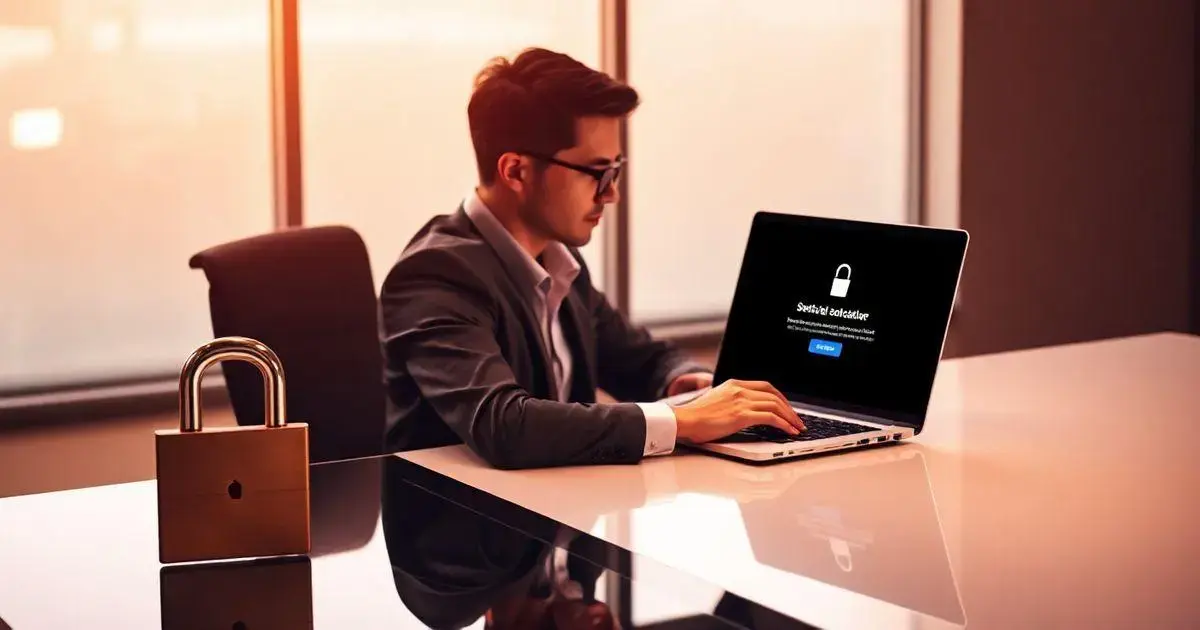Is Your Email Address Secure?
Have you ever wondered how secure your email address really is? In today’s digital age, where cyber threats loom at every corner, it’s crucial to understand the potential vulnerabilities associated with your email address. Let’s dive into what makes an email address secure and how you can protect your online communications.

Ways to Enhance Email Address Security
Email has become a vital communication tool in our digital age, making email security crucial. Enhancing the security of your email address is essential to protect your personal information and prevent unauthorized access. Here are some effective ways to enhance your email address security:
1. Use Strong and Unique Passwords:
One of the fundamental steps to secure your email address is to use strong and unique passwords. Avoid using easily guessable passwords like “123456” or “password.” Instead, create complex passwords with a mix of letters, numbers, and special characters. Additionally, use different passwords for each online account to prevent a domino effect if one account is compromised.
2. Enable Two-Factor Authentication (2FA):
Two-factor authentication adds an extra layer of security to your email account. By enabling 2FA, even if a cybercriminal obtains your password, they would still need a second form of verification to access your account. This could be a code sent to your phone or generated by an authenticator app. 2FA significantly enhances the security of your email address.
3. Be Cautious with Email Links and Attachments:
Cybercriminals often use phishing emails to trick recipients into clicking on malicious links or downloading harmful attachments. To enhance your email security, be cautious when clicking on links or downloading attachments in emails, especially if they are from unknown senders. Verify the sender’s details before taking any action.
4. Regularly Update Your Email Software:
Updating your email software is crucial for enhancing security as updates often include bug fixes and security patches. Running outdated email software exposes your account to vulnerabilities that cybercriminals can exploit. Enable automatic updates or regularly check for updates to keep your email software secure.
5. Use Secure Wi-Fi Networks:
When accessing your email on-the-go, ensure you use secure Wi-Fi networks. Public Wi-Fi networks are often targets for hackers to intercept data, including your email login credentials. Use a virtual private network (VPN) when connecting to public Wi-Fi to encrypt your data and protect your email communications from prying eyes.

Securing Your Email Address
Securing your email address from potential cyber threats and unwanted access is paramount in today’s digital age. Your email address serves as a gateway to various aspects of your online presence and personal information, making it crucial to implement robust security measures to protect it.
Why You Should Safeguard Your Email Address
Your email address is not just a means of communication; it is a valuable piece of information that can be exploited by cybercriminals for malicious purposes. By safeguarding your email address, you are not only protecting your personal data but also preventing unauthorized access to sensitive accounts linked to that email.
Furthermore, securing your email address ensures the confidentiality of your conversations, financial transactions, and other critical information exchanged via email. Any breach in email security can lead to significant privacy violations and financial losses.
It is essential to proactively take steps to secure your email address to mitigate the risks associated with potential data breaches and identity theft. By incorporating best practices for email security, you can enhance the overall protection of your online identity and digital assets.
Prioritizing the security of your email address also instills a sense of trust and reliability in your online interactions. By demonstrating a proactive approach to safeguarding your email, you convey a message to others that privacy and security are essential aspects of your digital presence.
Best Practices for Protecting Your Email Address
1. Enable Two-Factor Authentication: Adding an extra layer of security through two-factor authentication significantly enhances the protection of your email account. By requiring a second form of verification, such as a code sent to your phone, you can prevent unauthorized access even if your password is compromised.
2. Regularly Update Your Password: Changing your email password periodically and using complex combinations of letters, numbers, and special characters can fortify your account’s security. Avoid using easily guessable passwords and refrain from sharing them with others.
3. Be Cautious of Phishing Attempts: Exercise caution when clicking on links or opening attachments in emails from unknown senders. Phishing attempts often disguise malicious links as legitimate ones to trick individuals into revealing sensitive information.
4. Monitor Login Activity: Keep track of the devices and locations from which your email account is accessed. Most email providers offer tools to monitor login activity and alert you of any suspicious logins from unrecognized devices or locations.
5. Avoid Public Wi-Fi for Confidential Emails: Refrain from accessing your email account on public Wi-Fi networks, as they are more susceptible to security breaches. Use secure and private networks when sending or accessing confidential emails to minimize the risk of interception by unauthorized parties.
Conclusion
In today’s digital landscape, securing your email address is more important than ever. By following the strategies outlined, such as creating strong passwords, enabling two-factor authentication, and being mindful of phishing attempts, you significantly reduce the risk of unauthorized access. Remember that your email is often the key to other online accounts, making its security a top priority.
Staying proactive in your email security approach can help you safeguard your personal information and maintain the confidentiality of your communications. Regularly updating your software and monitoring your login activity are simple yet effective measures to ensure you remain aware of any potential threats. Each step you take reinforces the security of your online identity.
Ultimately, by implementing these best practices, you not only protect yourself but also set a standard for secure online interactions. In a world where cyber threats are increasingly sophisticated, fostering a culture of awareness and vigilance around email security will empower you and those around you to navigate the digital realm with greater confidence and integrity.
